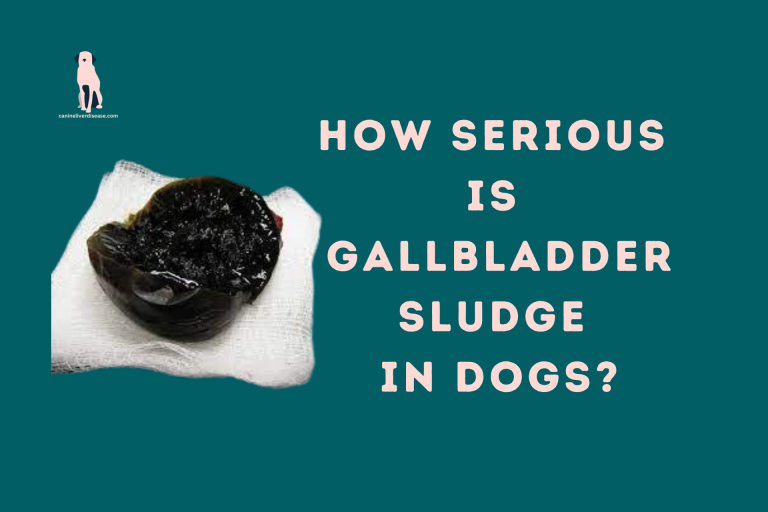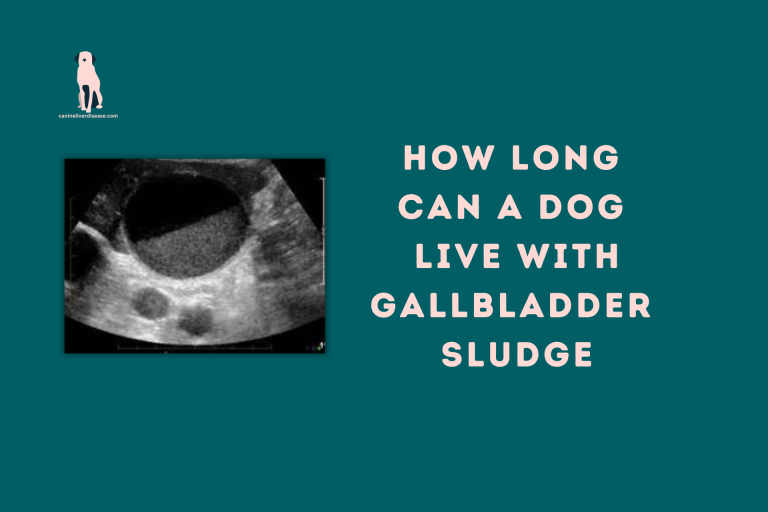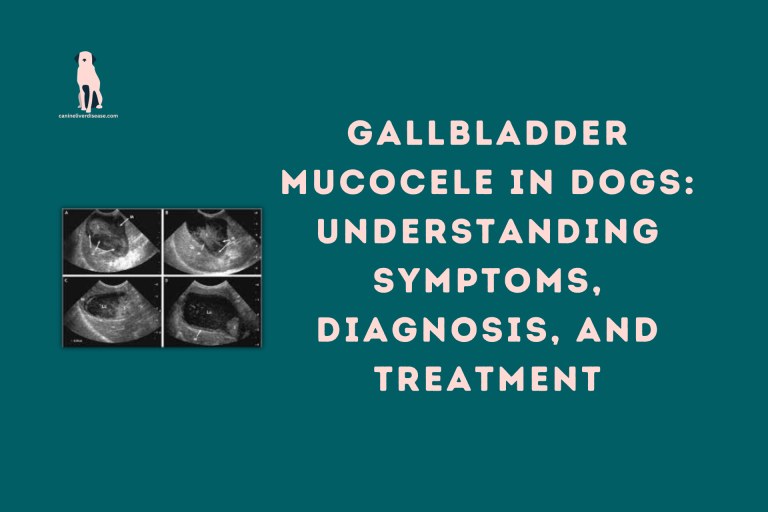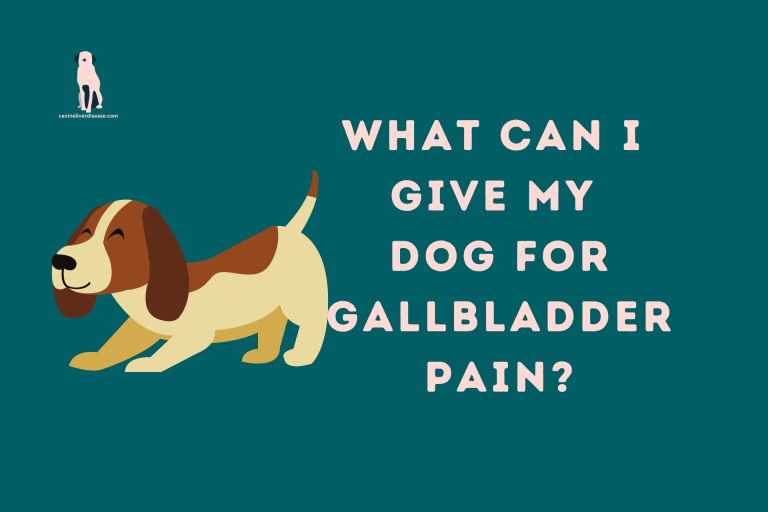Dog Gallbladder Sludge Symptoms: Recognizing the Signs of Canine Gallbladder Issues
Gallbladder problems in dogs can be a source of concern for pet owners. One common issue is gallbladder sludge, which can lead to various symptoms and discomfort for our furry friends. In this comprehensive guide, we will explore the symptoms of dog gallbladder sludge, shed light on related conditions like gallstones, and provide valuable insights into diagnosis and treatment.
Understanding the Gallbladder
Before delving into the symptoms of gallbladder sludge in dogs, it’s essential to have a basic understanding of the gallbladder’s role in your pet’s digestive system. The gallbladder is a small organ located beneath the liver, and its primary function is to store bile, a digestive fluid produced by the liver. When your dog consumes food, the gallbladder releases bile into the small intestine to aid in digesting and absorbing fats.
What is Dog Gallbladder Sludge?
Gallbladder sludge, or biliary sludge, is a condition in which the bile stored in the gallbladder becomes thick and dense. This thickening can be due to the precipitation of cholesterol crystals and other substances in the bile. When the bile thickens, it can lead to a range of digestive issues and discomfort for your dog.
Common Symptoms of Dog Gallbladder Sludge
Recognizing the symptoms of gallbladder sludge is crucial for early diagnosis and treatment. Let’s take a closer look at the signs that may indicate your dog is suffering from this condition:
1. Abdominal Pain
One of the most common symptoms of gallbladder sludge is abdominal pain. Your dog may display signs of discomfort, such as restlessness, whining, or even protective behavior around their abdomen.
2. Nausea and Vomiting
Dogs with gallbladder sludge may experience nausea and vomiting. Seeing your dog repeatedly vomiting or appearing nauseous could be a sign of gallbladder issues.
3. Indigestion
Gallbladder sludge can disrupt the normal digestive process, leading to indigestion. Your dog may exhibit discomfort after eating, such as excessive gas, burping, or stomach gurgling.
4. Bloating
Some dogs with gallbladder sludge may develop abdominal bloating. This can cause their abdomen to appear distended and may be accompanied by discomfort.
5. Back Pain
In some cases, gallbladder sludge can cause referred pain to the back. Your dog may show signs of back pain, such as reluctance to move or a hunched posture.
6. Jaundice
Jaundice is a condition characterized by yellowing of the skin, eyes, and gums. It can occur if gallbladder sludge obstructs the bile duct, affecting the liver’s ability to process bilirubin.
Differentiating Gallbladder Sludge from Gallstones
While gallbladder sludge and gallstones share some similarities, they are distinct conditions. Gallstones are hardened deposits that can block the bile duct, causing severe pain and complications. Gallbladder sludge, on the other hand, consists of thickened bile without the solid stone formation. The symptoms of gallbladder sludge are generally less severe than those of gallstones.
Diagnosis and Treatment
If you suspect that your dog may be experiencing gallbladder problems, it’s crucial to consult a veterinarian for a proper diagnosis and treatment plan. Here’s how the process typically unfolds:
Diagnosis
- Physical Examination: The veterinarian will thoroughly examine your dog, paying particular attention to the abdomen and any signs of discomfort.
- Blood Tests: Blood tests can help identify elevated liver enzymes and other gallbladder or liver issues markers.
- Imaging: Ultrasound is a valuable tool for visualizing the gallbladder and assessing its condition. It can reveal the presence of sludge or other abnormalities.
Treatment
The treatment approach for gallbladder sludge in dogs may vary depending on the severity of the condition. Common treatment options include:
- Dietary Modification: Your veterinarian may recommend a special diet to promote healthy gallbladder function and reduce the risk of sludge formation.
- Medications: Medications such as ursodeoxycholic acid (UDCA) may help dissolve the sludge and improve bile flow.
- Surgery: In severe cases or when complications arise, surgical gallbladder removal (cholecystectomy) may be necessary.
It’s essential to follow your veterinarian’s guidance and treatment plan diligently to ensure the best outcome for your dog.
FAQs (Frequently Asked Questions)
1. Is gallbladder sludge common in dogs?
Gallbladder sludge can occur in dogs, but it’s not as common as other digestive issues. However, it’s crucial to be aware of the symptoms.
2. Can diet play a role in preventing gallbladder sludge in dogs?
Yes, a well-balanced diet can help prevent gallbladder sludge. Consult your vet for dietary recommendations tailored to your dog’s needs.
3. Is gallbladder sludge a life-threatening condition?
Gallbladder sludge itself is typically not life-threatening. However, if left untreated and underlying issues worsen, it can lead to serious complications.
4. Are certain dog breeds more prone to gallbladder sludge?
While some breeds may have a genetic predisposition to gallbladder issues, it can affect dogs of any breed or age.
5. Can gallbladder sludge be managed without surgery?
In many cases, gallbladder sludge can be managed with dietary changes and medications, eliminating the need for surgery.
Conclusion
In conclusion, being vigilant about your dog’s health is crucial as a responsible pet owner. Understanding the symptoms of dog gallbladder sludge and related conditions like gallstones empowers you to take prompt action when necessary. If you suspect your dog is experiencing these symptoms, don’t hesitate to seek professional veterinary care. Early diagnosis and appropriate treatment can significantly affect your pet’s quality of life.
Remember that your dog relies on you for their well-being, so it’s essential to prioritize their health. You can help your furry companion live a happy and healthy life with the right care and attention.






